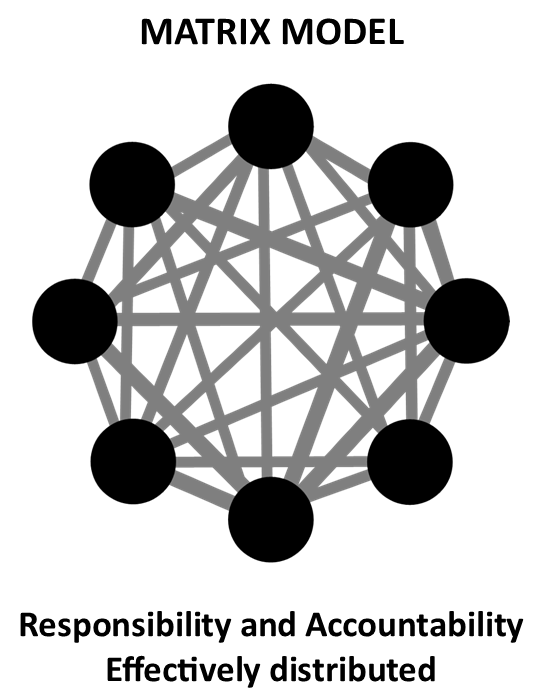
Master the ability to create fulfilling relationships and have influence—as part of an ongoing group or an existing team.
If you want to develop your communication and relational abilities, your ability to resolve conflicts, to relate in a meaningful way, but do not have a partner, or your partner does not share your interest—this is a way for you to master these skills, while having an engaging and enlivening experience with a diverse group of peers.
For existing teams, learn how to effectively share responsibility and decision-making. Building your connections, your ability to trust each other, allows you to work faster, with less stress and wasted time. Discover how to efficiently include diverse perspectives—to unlock new levels of productivity and creativity, enhancing morale and loyalty.

What does it take to develop meaningful associations, a sense of belonging and community with interesting people who you care about? Our world provides extraordinary connectivity, while creating conditions of loneliness. Digital dopamine is like a drug, leaving us hungry for the next hit— real human connection, in contrast, truly nourishes heart, mind and soul.
Do you find your intentions are sometimes misread? Do you wonder what is going on inside other people as they interact with you? It is not easy to find honest feedback—accurate information about your impact—that is genuinely helpful. This kind of input supports you in being more effective at manifesting your true intentions. It often feels easier to sugarcoat or ignore rough spots with other people. Do you find that giving or receiving feedback, even accurate feedback, creates distance or ends up making things worse? It doesn’t need to be like that.
Being a member of an ongoing group of exceptional people, relating from a place of authenticity and compassion, is uniquely beneficial. Developing a safe and supportive connection with peers offers many opportunities for learning and personal development. It becomes possible to comprehend self-sabotaging blind spots you might otherwise never see. At the same time, your skills as a communicator and an astute observer will undergo rapid development. Finally, you will be confronted by your magnificence, healing negative self-talk, and providing enhanced motivation and inspiration. These particular types of meaningful conversations are how we learn, adapt, and become more fulfilled.
Members of a cohesive group feel warmth, comfort and a sense of belongingness… valued, accepted, and supported.
―Irvin D. Yalom
I am a great believer that any tool that enhances communication has profound effects on how people learn from each other—and how they can achieve the kind of freedoms that they’re interested in.
—Bill Gates


High-performance teams are the foundation of organizational success from the shop floor, sales or research team to C-suites. Mastering the Five Key Phases for Organizational Success starts with training teams in the necessary skills to thrive in each phase. This begins with learning how to be more inclusive, more open, and communicate more efficiently—generating a culture of energy and enthusiasm in which rapid innovation and positive change become norms.
Depending on your specific needs, there are a number of proven approaches that will support these objectives. Correctly assessing the best approach and being adaptable to changing conditions is a hallmark of our work.
You will master the skill set necessary for creating honest and satisfying conversations with others—how to easily create open-hearted and open-minded connections. Think of this as relational aikido, an unpretentious way to create meaningful interactions with ease. Here are five core principles:
Welcome Everything—meet your own experience and that of others with equanimity
Assume Nothing—observe what is actually happening without fear or distortion
Be Authentic—genuinely connect without posturing or defensiveness
Take Responsibility—speak your truth without blaming or acting like a victim
Show Respect—treat others, and yourself, with dignity and honor
The single biggest problem in communication is the illusion that it has taken place.
—George Bernard Shaw
You will learn advanced practices for resolving conflicts, even if nothing has worked in the past. This includes developing key skills as a listener, such as self-soothing and committing to a new learning style. As a speaker, you will discover how to avoid creating unnecessary resistance—how to present your ideas in a manner most likely to gain alignment. You will also explore the essential keys to resolving grievances and hurt feelings.
Become an effective advocate for your own ideas, as you enhance your ability to speak clearly and succinctly, while monitoring how others are receiving you. Acquire the skills to create multi-modal and experiential learning, both of which are vastly more effective than memos and directives.
Take advantage of every opportunity to practice your communication skills so that when important occasions arise, you will have the gift, the style, the sharpness, the clarity, and the emotions to affect other people.
—Jim Rohn


Learn the essential methods and distinctions for creating cohesive, high-performing groups. Master simple, yet remarkably workable methods for enhancing and deepening group conversations—accessing and including the best ideas in the room—a form of group intelligence that is greater than the sum of individual participants.
The term collective intelligence is often applied to superorganisms, like bee colonies. Those who study bees recognize that they are astonishingly intelligent as a collective. What is less well-known is that individual bees are also highly intelligent and adaptable. Their collective intelligence is based on the capacity of each individual bee to adapt to the moment-by-moment needs of the whole, an apt metaphor for this work.
The strength of the team is each individual member. The strength of each member is the team.
—Phil Jackson
Sociometry provides you with methods for mapping and monitoring social relationships and their emotional impacts on group members. This is crucial for retention, as well as getting full-on participation.
These tools make it possible to accurately assess and explore differences among group members and group subsets. You can quickly identify alliances and useful perspectives that might otherwise remain hidden, especially when it may feel risky to tell the truth.
This provides a method for groups to explore important, but tricky issues safely and with exceptional speed, developing the competence to reliably come to resolution, even when there is strong disagreement.
Not all differences are problems to be solved. Sometimes they are dynamic tensions that need to be
effectively managed. For example, centralized vs distributed decision-making or systematized structures vs the freedom to innovate. Far beyond simply trying to achieve balance, this approach identifies practices to achieve the ideal upsides of both poles—and offers a way to have seemingly incompatible polarities mutually reinforce each other.
Organizations themselves can never be truly agile unless people who work within the organization are agile—and most importantly emotionally agile.
—Susan David
The Enneagram is a system of understanding personality used by prominent business and religious leaders, academicians, attorneys, consultants, therapists, authors and screenwriters worldwide. It provides masterful insight into human behavior and is unusually helpful for achieving self-awareness and personal growth. The Enneagram is particularly valuable for identifying and overcoming self-limiting behaviors, thus improving relationships and decision-making.
All persons are puzzles until at last we find in some word or act the key to the man, to the woman; straightway all their past words and actions lie in light before us.
—Ralph Waldo Emerson
This toolkit provides you with a useful framework for exploring the ethical uses of power in three dimensions:
Learn frameworks for managing the extra responsibility for ethical behavior that comes with up-power. At the same time, organizational health requires that those in down-power roles avoid various forms of sabotage. This often occurs when there is a down-power effort (conscious or unconscious) to equalize power—especially when power is being inappropriately used by those in up-power roles. Benefit from rich and fruitful discussions about managing boundaries and creating functional relationships based on respect and integrity.
Rank should not confer privilege or give power. It imposes responsibility.
—Peter Drucker
Diversity is being invited to the party; inclusion is being asked to dance.
—Verna Myers
Relating can be a hassle
Even though you love them a passel
You start off real nice
But then you think twice:
Did I make a mistake?
Is there no give and take?
Joy’s hard to find
When you’re losing your mind
It’s hard to know
Which way to go
Things are so fraught
My efforts are naught
How can I make things better?
I heard about this class
And figured… I would pass
But then, I thought again
If there’s any chance to win
I oughta give it a try
There’s lots of reasons why
Much to my surprise
I found love in my partner’s eyes
Now our life’s so sweet
At last I feel complete